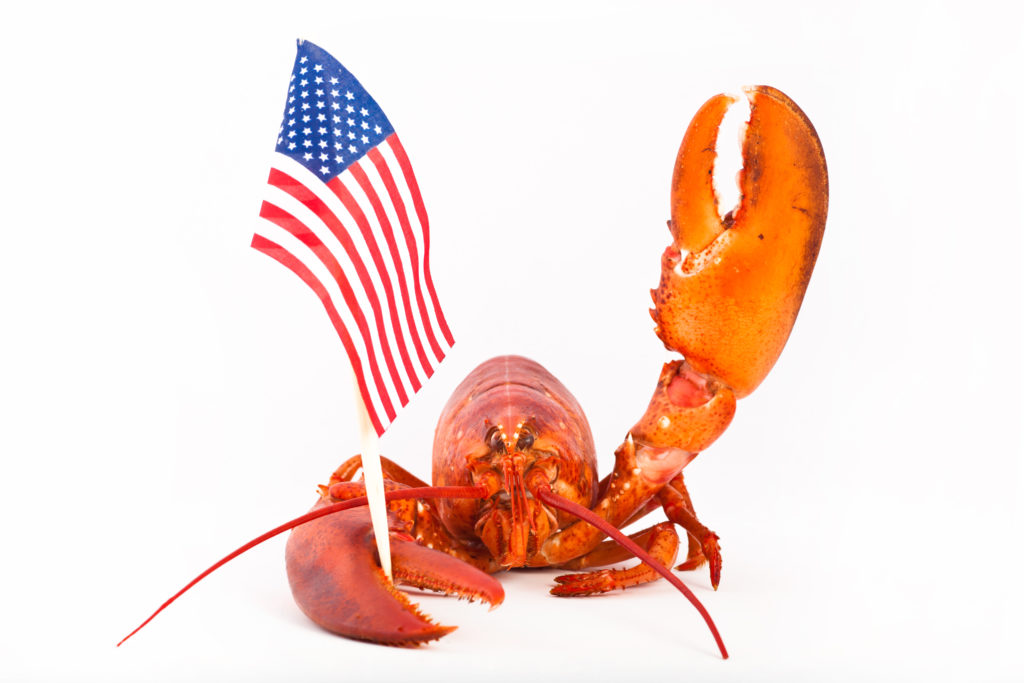
President Trump’s preference for bilateral trade agreements, expressed when he pulled the United States out of the Trans-Pacific Partnership (TPP) in 2017, has borne modest results: one comprehensive agreement and several limited trade deals. He recently added two mini-agreements – one with the European Union and another with Brazil – to earlier agreements with China, Japan and Korea. This post examines the two agreements added in 2020, in particular the lobster trade pact with the EU and its application in contrast to the U.S.-Japan stage-one tariff agreement.
The administration’s most significant agreement to date is the U.S.-Mexico-Canada Agreement (USMCA), which revised and replaced the North American Free Trade Agreement. It has also negotiated limited trade pacts with Brazil, China, the EU and Japan, with further negotiations on broader issues uncertain. The U.S. also agreed with Korea on modest revisions of their free trade agreement (FTA).
U.S.-EU Tariff Agreement: Two years after President Trump and the European Commission’s president agreed to pursue talks on tariff and trade issues, the U.S. and the EU concluded a small package of tariff reductions that will apply to approximately $270 million in trade. Under the August 21 agreement, the EU will eliminate tariffs on imports of U.S. lobster for a period of five years. For its part, the U.S. will reduce by 50 percent its tariff rates on certain EU products of comparable economic value, including prepared meals, certain crystal glassware, surface preparations, propellant powders, cigarette lighters and lighter parts. The parties will apply the tariff agreement on a most-favored-nation (MFN) basis, retroactive to August 1, 2020.
The U.S. had sought the reduction in EU duties on lobster imports as a means of bolstering declining exports, in particular to China as a consequence of its retaliatory tariffs, as the president described in a June 2020 memorandum on protecting the lobster industry. The president also noted that U.S. lobster exports to the EU “appear to have been significantly and negatively affected” by the 2017 implementation of the Comprehensive Economic and Trade Agreement between the EU and Canada.
On September 8, the European Commission proposed a regulation for approval by the European Parliament and the Council to make the tariff changes permanent. The regulation will enter into force following its approval and publication in the Official Journal of the European Union. One of the conditions for the EU’s elimination of the duties is “abstention by the United States from introducing new measures against the European Union that undermine the objectives pursued by the Joint Statement of 21 August 2020.”
According to Borderlex, the lobster deal is on hold until after the U.S. presidential election following withdrawal of support for it by the chair of the European Parliament’s international trade committee. The committee chair wants the Commission to suspend the deal until the U.S. removes tariffs put in place after August 1, specifically aluminum anti-dumping tariffs that the U.S. imposed on 18 countries, including seven EU member states, on October 9.
The MFN application of the tariff reductions in the U.S.-EU agreement stands in contrast to the U.S.-Japan mini-tariff agreement, implemented at the beginning of 2020, which applies agricultural and industrial tariff reductions on a preferential basis. That has led trading partners, including the EU, China, Canada, Israel and New Zealand, and members of Congress to question whether the agreement complies with WTO rules that require preferential agreements to cover “substantially all” trade between the parties. The U.S. and Japan responded that their mini-agreement is intended to be the first stage of a more comprehensive agreement. However, it is not at all clear when or whether such an agreement will be negotiated.
In an October 2020 report, the Congressional Research Service suggested that in addition to considering whether the stage-one agreement with Japan is consistent with U.S. obligations under the WTO, Congress may want to examine whether its limited scope “sets precedents for other countries to negotiate other partial trade agreements that liberalize trade on a limited set of products or sectors that could potentially discriminate against the United States, as well as potentially undermine respect and adherence to the letter and spirit of the WTO.”
U.S.-Brazil Updated Agreement: On October 19, the U.S. and Brazil updated a 2011 Agreement on Trade and Economic Cooperation by signing a protocol on trade rules and transparency. The protocol incorporates three annexes comprising what the U.S. Trade Representative (USTR) labeled as “state-of-the-art provisions” on Customs Administration and Trade Facilitation, Good Regulatory Practices and Anticorruption. One Annex expands on the multilateral WTO Trade Facilitation Agreement with provisions on online publication of customs and other border information, a single window for import, export and transit, and electronic systems for traders.
A second Annex on Good Regulatory Practices, which applies the framework established in the USMCA, will increase the transparency of Brazilian regulatory procedures, for example, by requiring online publication of draft regulations, an opportunity for public comments and consideration of the comments. The Anti-Corruption Annex “expands both countries’ frameworks to include provisions addressing money laundering, the recovery of proceeds of corruption, the denial of a safe haven for foreign public officials that engage in corruption and additional protections for whistleblowers.”
The Brazil agreement has drawn criticism from Congress for not addressing agricultural issues. Several congressional members criticized it for circumventing Congress and rewarding the “Brazilian administration that lacks respect for basic human rights, the environment, and its own workers,” according to Inside U.S. Trade.
Of the trade agreements negotiated by the Trump administration, only the USMCA was approved by Congress. The president relied on existing authorities for the other agreements, raising concerns in Congress with the scope of his authority. That is expected to be an issue in the next Congress, in particular in consideration of renewal of Trade Promotion Authority, which expires on June 30, 2021.
Jean Heilman Grier
October 28, 2020
Related Posts
US-EU Talks: Procurement Prospects
US-Japan Trade Deal: No Auto Tariffs Exemption
U.S.-Japan Agreements: Examining the Texts
Post Permalink: https://trade.djaghe.com/mini-trade-deals-with-eu-and-brazil/

